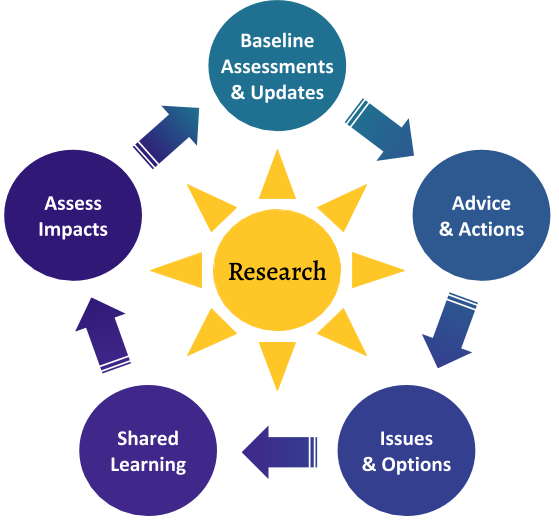A growing network for learning and actionThe SEEK project partners with faith communities across the country, in all spiritual traditions, that aspire to enhance their sustainability practices and establish goals around climate action, just energy transitions, community resilience, and using resources more efficiently to invest more in their missions. As a university based program, we link learning and doing. We are working with congregations in the Phoenix area and nationwide, and small municipalities, to conduct energy assessments and set up an Energy Star monitoring systems that help link energy actions to sustainable planning. Join the growing group of faith communities taking small actions to make big changes in their sustainable practices -- creating a local and global difference!
What you can expect once you sign up One of our students will contact you within 5 business days to introduce themselves, discuss your situation, and help you get started on a baseline energy assessment. Why might you want one? Are you providing more services to your community during the pandemic and driving up your utility bills? Opening up your worship facility as a cooling center? Looking for a concrete way to role model climate action in your community? Investigating solar as an option for your worship facility, school or community space? Do you want to meaningfully connect energy and climate work with your congregation's focus on stewardship and justice? Do you have energy goals in your sustainability plan and need a way to assess your progress? |
1 assess your energy baseline and climate impact -- your starting linE
To make a difference, first mark your starting line and then see how far you can go. To make this easy, we use EPA's Portfolio Manager® platform, a free, online tool developed by ENERGY STAR® and trusted for decades by worship facilities, schools, universities, and commercial facilities. Worship facilities that do energy assessments can reduce their annual energy usage by up to 30%, save more than 2% annually on their energy bills, and reduce their annual greenhouse gas emissions by 87 metric tons -- by making modest changes that are low or sometimes no-cost. Multiple that by 10, 1000, or 200,000 worship facilities, and what might seem like little changes add up to a big collective impact.
2 get more detailed insights about actions you can take
Low or even no-cost improvements can make a big difference in conserving energy and saving money on utility bills. If you need a more in-depth energy audit, we'll help you locate the expertise you need. We can also help you decide if going solar is right for you and for your community.
3 learn more about issues and options that matter to you
library of resources as well as pop-up webinars, workshops, and training. We also recommend high-quality webinar libraries provided by our partners like SSF (go to the webinar archive here). Be sure to scroll down to find the "Faith and Climate" series we developed together. Check out the wealth of information at EPA's Resources for Congregations.
4 share what you learn with others and benefit from their experience
5 measure the impact you are making, alone and with others
Project participants can measure their individual and collective impacts on energy usage, transitions to renewable energy products and services, greenhouse gas emissions, energy expenditures, and ability to reinvest cost savings into social service. Working as a group opens new opportunities for community solar, help with energy upgrades, and sharing information about issues as well as lessons learned. We'll be rolling out a SEEK dashboard so you can see at a glance the kind of impact faith communities are making together.



